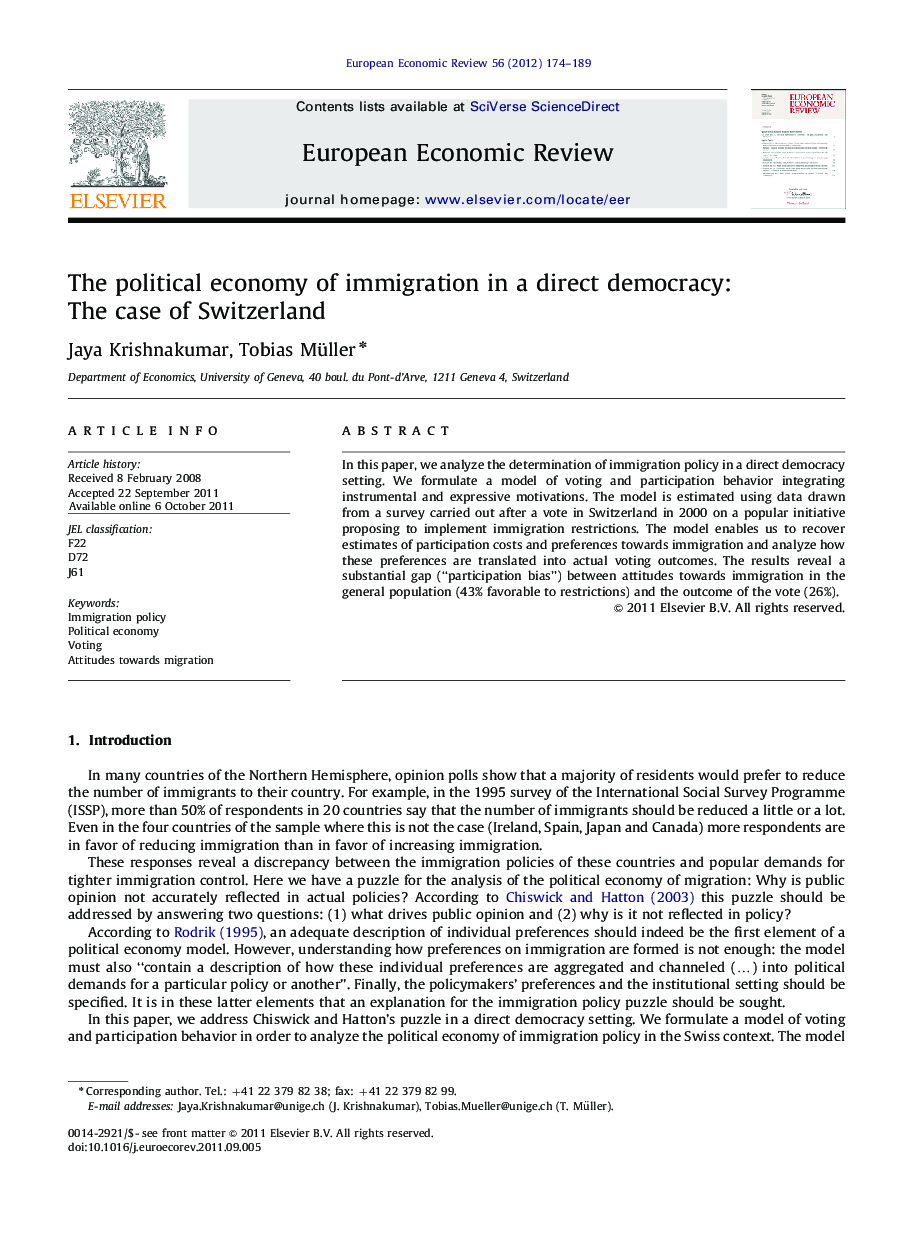| Article ID | Journal | Published Year | Pages | File Type |
|---|---|---|---|---|
| 5067216 | European Economic Review | 2012 | 16 Pages |
In this paper, we analyze the determination of immigration policy in a direct democracy setting. We formulate a model of voting and participation behavior integrating instrumental and expressive motivations. The model is estimated using data drawn from a survey carried out after a vote in Switzerland in 2000 on a popular initiative proposing to implement immigration restrictions. The model enables us to recover estimates of participation costs and preferences towards immigration and analyze how these preferences are translated into actual voting outcomes. The results reveal a substantial gap (“participation bias”) between attitudes towards immigration in the general population (43% favorable to restrictions) and the outcome of the vote (26%).
⺠We analyze the determination of immigration policy in a direct democracy setting. ⺠We formulate a structural model of voting and participation behavior. ⺠Data are drawn from a survey carried out after a vote in Switzerland in 2000. ⺠Human capital is an important determinant of attitudes towards immigration. ⺠There is a substantial gap between vote outcome and attitudes towards immigration.
